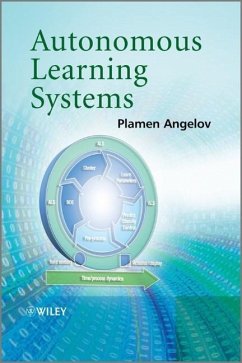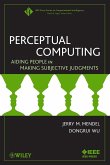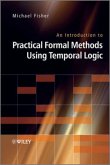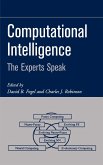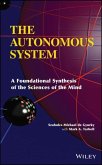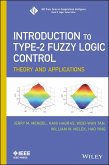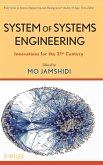Autonomous Learning Systems is the result of over a decade of focused research and studies in this emerging area which spans a number of well-known and well-established disciplines that include machine learning, system identification, data mining, fuzzy logic, neural networks, neuro-fuzzy systems, control theory and pattern recognition. The evolution of these systems has been both industry-driven with an increasing demand from sectors such as defence and security, aerospace and advanced process industries, bio-medicine and intelligent transportation, as well as research-driven - there is a strong trend of innovation of all of the above well-established research disciplines that is linked to their on-line and real-time application; their adaptability and flexibility.
Providing an introduction to the key technologies, detailed technical explanations of the methodology, and an illustration of the practical relevance of the approach with a wide range of applications, this book addresses the challenges of autonomous learning systems with a systematic approach that lays the foundations for a fast growing area of research that will underpin a range of technological applications vital to both industry and society.
Key features:
Presents the subject systematically from explaining the fundamentals to illustrating the proposed approach with numerous applications.
Covers a wide range of applications in fields including unmanned vehicles/robotics, oil refineries, chemical industry, evolving user behaviour and activity recognition.
Reviews traditional fields including clustering, classification, control, fault detection and anomaly detection, filtering and estimation through the prism of evolving and autonomously learning mechanisms.
Accompanied by a website hosting additional material, including the software toolbox and lecture notes.
Autonomous Learning Systems provides a 'one-stop shop' on the subject for academics, students, researchers and practicing engineers. It is also a valuable reference for Government agencies and software developers.
Hinweis: Dieser Artikel kann nur an eine deutsche Lieferadresse ausgeliefert werden.
Providing an introduction to the key technologies, detailed technical explanations of the methodology, and an illustration of the practical relevance of the approach with a wide range of applications, this book addresses the challenges of autonomous learning systems with a systematic approach that lays the foundations for a fast growing area of research that will underpin a range of technological applications vital to both industry and society.
Key features:
Presents the subject systematically from explaining the fundamentals to illustrating the proposed approach with numerous applications.
Covers a wide range of applications in fields including unmanned vehicles/robotics, oil refineries, chemical industry, evolving user behaviour and activity recognition.
Reviews traditional fields including clustering, classification, control, fault detection and anomaly detection, filtering and estimation through the prism of evolving and autonomously learning mechanisms.
Accompanied by a website hosting additional material, including the software toolbox and lecture notes.
Autonomous Learning Systems provides a 'one-stop shop' on the subject for academics, students, researchers and practicing engineers. It is also a valuable reference for Government agencies and software developers.
Hinweis: Dieser Artikel kann nur an eine deutsche Lieferadresse ausgeliefert werden.

